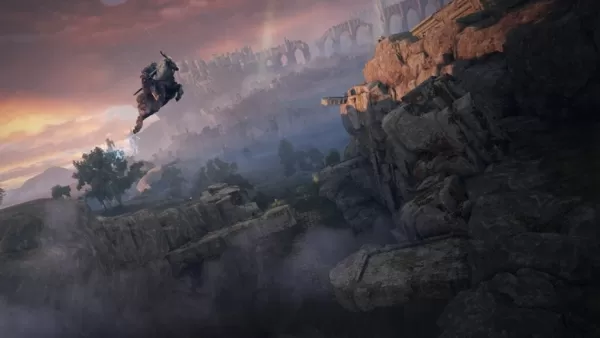Open-world games were once synonymous with endless checklists. Maps cluttered with markers, mini-maps dictating every move, and objectives that felt more like chores than adventures defined the genre. But then, Elden Ring arrived, and FromSoftware tossed out the traditional playbook, eschewing hand-holding for genuine freedom, revolutionizing open-world gaming in the process.
In collaboration with our partners at Eneba, we're diving into how Elden Ring has reshaped the genre and why its impact is worth celebrating.
A World That Doesn’t Beg for Your Attention
Most open-world games clamor for your focus with constant notifications about where to go, what to do, and why it matters. Elden Ring, however, adopts a subtler approach—it whispers rather than shouts. It unfolds a vast, enigmatic world and empowers you to explore it at your own pace.
Gone are the intrusive UI elements; instead, your curiosity leads the way. If a distant landmark catches your eye, venture forth. You might uncover a hidden dungeon, a potent weapon, or a menacing boss eager to challenge you.
One of the game's standout features is the absence of level scaling. The world remains unyielding, forcing you to adapt to its challenges. If an area proves too tough, you can return later or bravely confront it then and there. Fancy taking on a dragon at level five with a broken sword? Go for it, but be prepared for the consequences.
It's never too late to immerse yourself in the Lands Between, especially when you can grab an Elden Ring Steam key at a surprisingly low price on Eneba.
Exploration Feels Like Discovery, Not a Checklist
In many open-world games, exploration is often about ticking off tasks as efficiently as possible, turning adventure into errand-running. Elden Ring, however, transforms this entirely.
There's no quest log directing your every step. NPCs speak in riddles, distant landmarks beckon without explanation, and the game never pauses to spell everything out for you.
This approach might seem daunting, but it's precisely what makes exploration so gratifying. Each cave, ruin, and fortress feels like a personal discovery, spurred by your own curiosity rather than a directive.
Moreover, unlike other games where rewards can feel random, Elden Ring ensures every find is meaningful. A hidden cave might yield a weapon that changes the game or a spell capable of summoning a meteor storm.

The Joy of Getting Lost (and Surviving)
While most games view getting lost as a setback, in Elden Ring, it's an integral part of the experience. You might take a wrong turn into a treacherous poison swamp or stumble into what seems like a serene village, only to be ambushed by horrific creatures. Yet, these moments breathe life into the world.
The game doesn't coddle you, but it does provide subtle hints. A statue might gesture toward hidden treasure, or a cryptic NPC could hint at a secret boss. By paying attention, the world gently guides you without pushing you down a predetermined path.
Open-World Games Will Never Be the Same?
Post-Elden Ring, the open-world genre has been irrevocably altered. FromSoftware demonstrated that players crave mystery, challenge, and the joy of discovery over constant guidance. We can only hope other developers will follow suit.
If you're eager to immerse yourself in a world that not only invites but demands exploration, digital marketplaces like Eneba offer fantastic deals on gaming essentials. Whether it's Elden Ring or other must-play titles, your next adventure awaits just a few clicks away.















